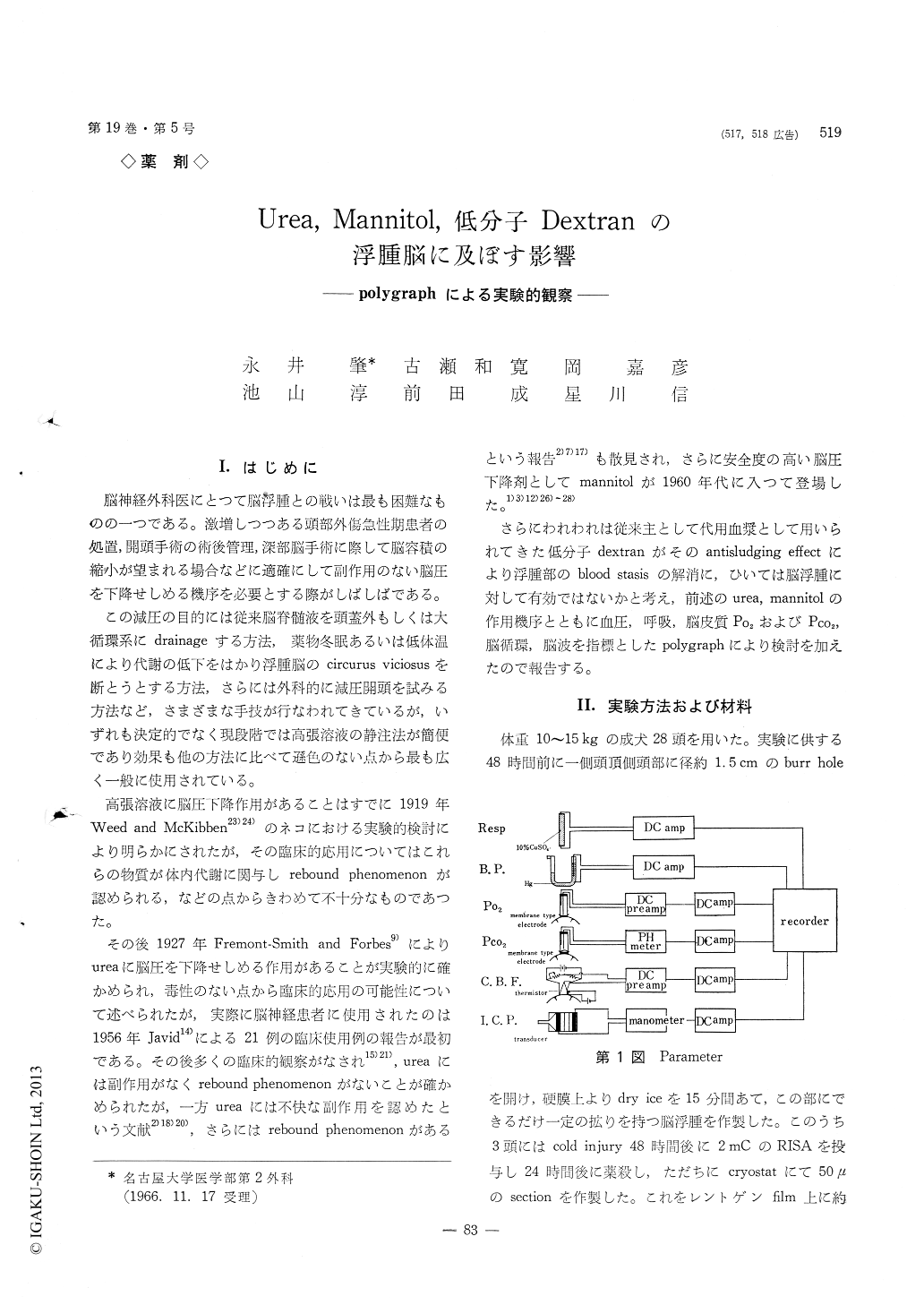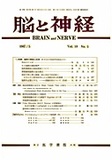Japanese
English
- 有料閲覧
- Abstract 文献概要
- 1ページ目 Look Inside
I.はじめに
脳神経外科医にとつて脳浮腫との戦いは最も困難なものの一つである。激増しつつある頭部外傷急性期患者の処置,開頭手術の術後管理,深部脳手術に際して脳容積の縮小が望まれる場合などに適確にして副作用のない脳圧を下降せしめる機序を必要とする際がしばしばである。
この減圧の目的には従来脳脊髄液を頭蓋外もしくは大循環系にdrainageする方法,薬物冬眠あるいは低体温により代謝の低下をはかり浮腫脳のcircurus viciosusを断とうとする方法,さらには外科的に減圧開頭を試みる方法など,さまざまな手技が行なわれてきているが,いずれも決定的でなく現段階では高張溶液の静注法が簡便であり効果も他の方法に比べて遜色のない点から最も広く一般に使用されている。
The effects of urea, mannitol and low molecular dextran on cerebral edema were observed utilizing various parameters. These parameters consisted of respirations, systemic blood pressure, cerebral blood flow by means of heat clearance method, electroen-cephalography, cortical PO2 and PCO2.
Cold induced edema was prepared on one side of the hemisphere of 25 adult dogs. The animals were divided into the following three groups.
Group 1: Eleven dogs received intravenous infu-sion of 30% urea solution of 1.5gm/kg.
Group 2: Ten dogs received intravenous infusion of 20% mannitol solution of 3.0gm/kg.
Group 3: Four dogs received intravenous infusion of 5% low molecular dextran of 10cc/kg.
Group 1: Immediately after the infusion of the urea solution, the intracranial pressure, after a slight initial elevation, decreased gradually. In all cases, irregular or rough respirations were observed within 15 minutes. The systemic blood pressure decreased at this time, and two dogs passed into shock state and died. Cortical PO2 decreased in 10 of 11 dogs, and was always accompanied by reduction of regional cerebral blood flow in edematous tissue. In EEG, slight voltage depression and occasionally slow waves were observed in early stage after the infusion, and then these altera-tions were followed by gradual improvements. These experimental results might suggest that the administ-ration of the urea solution remains some problems for its clinical use.
Group 2: The systemic blood pressure increased slightly in all cases. In this group, neither irregular respirations nor the alterations of cortical PO2 was observed. Cortical PCO2 showed gradual decrease, and was always accompanied by increase of cerebral blood flow. The intracracranial pressure decreased in all cases. EEG revealed slight improvement. These re-sults suggested that the administration of mannitol bring about a beneficial effect on cerebral edema.
Group 3: The cerebral blood flow increased slightly in all cases, but the other parameters showed no re-markable alterations. The increase of cerebral blood flow seemed to be a result from the antisludging effect of low molecular dextran.

Copyright © 1967, Igaku-Shoin Ltd. All rights reserved.


